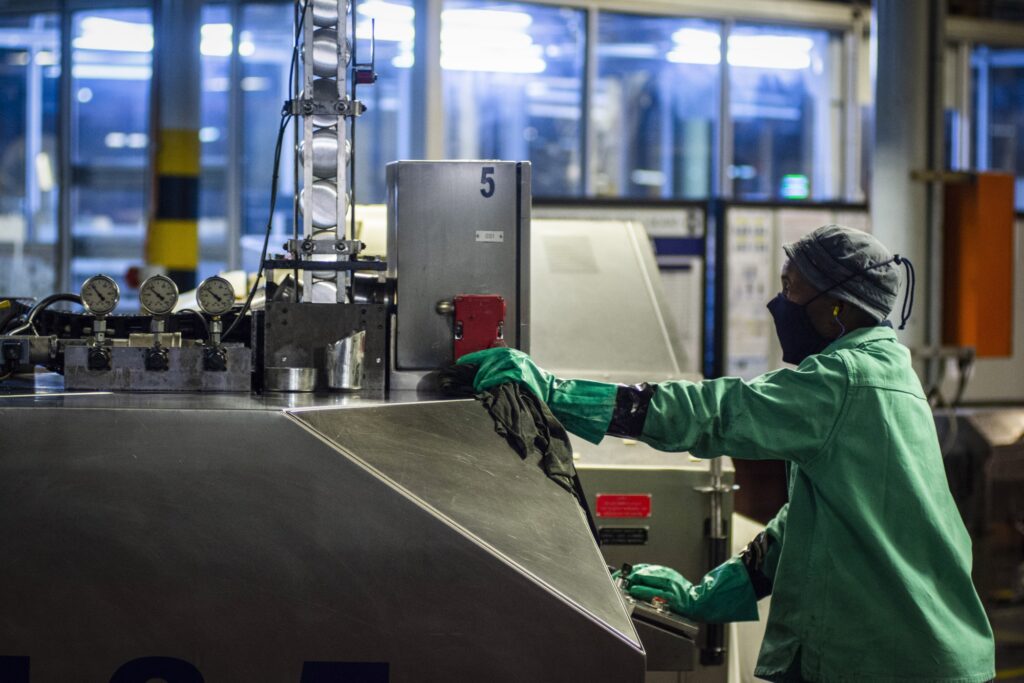South Africa’s manufacturing activity experienced a significant setback in the recent period, according to the Absa Purchasing Managers’ Index (PMI) report, published in partnership with Stellenbosch University’s Bureau for Economic Research. The data indicates a sharp decline in the PMI, raising concerns about the health of the nation’s industrial sector and its potential impact on the overall economy.
The Absa PMI is a widely regarded indicator that measures the performance of the manufacturing sector in South Africa. The latest data, covering the month of July 2023, revealed a substantial drop in the index to a worrying low of 47.3 in July, down from June’s already low 47.6. This represents the lowest reading since July 2021 when SA experienced deadly riots and looting that erupted in KwaZulu-Natal and parts of Gauteng.
Contributing Factors
Several factors have contributed to this steep downturn in manufacturing activity. Among the key challenges faced by the sector are:
- Supply Chain Disruptions: South Africa’s manufacturing industry has been grappling with disruptions in the global supply chain caused by the COVID-19 pandemic, as well as other geopolitical uncertainties. These disruptions have led to material shortages, higher costs, and logistical challenges, affecting the overall production capacity.
- Energy Crisis: The country has been facing an ongoing energy crisis, characterized by power shortages and rolling blackouts. The unreliable electricity supply has severely impacted production schedules, leading to factory shutdowns and hampering the sector’s ability to meet demand.
- Labor Unrest: The country has experienced labor-related issues in some key industries, with strikes and protests disrupting production activities and creating uncertainty for investors.
- Economic Uncertainty: The overall economic climate in South Africa has been fragile, with subdued consumer demand and sluggish economic growth. These conditions have negatively affected manufacturing companies’ outlook and investment decisions.
Implications for the Economy
The manufacturing sector plays a vital role in South Africa’s economy, contributing significantly to employment, exports, and overall economic growth. A downturn in manufacturing activity can have far-reaching consequences, including:
- Employment Concerns: A decline in manufacturing activity often leads to job losses, exacerbating an already challenging employment situation in the country.
- Impact on Exports: As manufacturing constitutes a substantial portion of South Africa’s export base, a slump in this sector could affect the country’s foreign exchange earnings and trade balance.
- Weakened Investment Climate: The weaker PMI reading may signal caution to potential investors and reduce their willingness to invest in the manufacturing sector and other related industries.
Policy Interventions and the Way Forward
Addressing the challenges faced by the manufacturing sector requires a multi-faceted approach by the South African government and relevant stakeholders. Some potential measures that could be taken include:
- Infrastructure Investment: Addressing the energy crisis is crucial, and investing in stable and sustainable energy sources can help mitigate production disruptions.
- Enhancing Supply Chain Resilience: Encouraging domestic production of critical inputs and diversifying supply sources can reduce the sector’s dependence on global supply chains and mitigate potential disruptions.
- Labour-Industry Dialogue: Encouraging constructive dialogue between labor unions and manufacturing companies can help reduce labor-related disputes and ensure better working conditions.
- Economic Reforms: Implementing reforms to improve the overall business environment, including addressing red tape and enhancing investor confidence, can attract much-needed investments.
While the decline in South Africa’s manufacturing activity presents challenges, it also serves as a call to action for policymakers and industry leaders to collaborate and implement measures that will help revive the sector. Strengthening the manufacturing industry is essential for driving economic growth, job creation, and fostering long-term sustainability for the nation’s economy.
